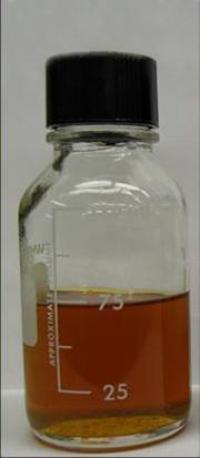 Researchers in Nevada are reporting that waste coffee grounds can provide a cheap, abundant, and environmentally friendly source of biodiesel fuel for powering cars and trucks. Their study has been published online in the American Chemical Society’s (ACS) Journal of Agricultural and Food Chemistry, a bi-weekly publication.
Researchers in Nevada are reporting that waste coffee grounds can provide a cheap, abundant, and environmentally friendly source of biodiesel fuel for powering cars and trucks. Their study has been published online in the American Chemical Society’s (ACS) Journal of Agricultural and Food Chemistry, a bi-weekly publication.
Spent coffee grounds contain between 11 and 20 percent oil by weight. That’s about as much as traditional biodiesel feedstocks such as rapeseed, palm, and soybean oil. The scientists estimated that spent coffee grounds can potentially add 340 million gallons of biodiesel to the world’s fuel supply.
Growers produce more than 16 billion pounds of coffee around the world each year. The used or “spent” grounds remaining from production of espresso, cappuccino, and plain old-fashioned cups of java, often wind up in the trash or find use as soil conditioner.
In the new study, Mano Misra, Susanta Mohapatra, and Narasimharao Kondamudi note that the major barrier to wider use of biodiesel fuel is lack of a low-cost, high quality source, or feedstock, for producing that new energy source.
The scientists collected spent coffee grounds from a multinational coffeehouse chain and separated the oil. They then used an inexpensive process to convert 100 percent of the oil into biodiesel.
The resulting coffee-based fuel — which actually smells like java — had a major advantage in being more stable than traditional biodiesel due to coffee’s high antioxidant content, the researchers say. Solids left over from the conversion can be converted to ethanol or used as compost, the report notes. The scientists estimate that the process could make a profit of more than $8 million a year in the U.S. alone. They plan to develop a small pilot plant to produce and test the experimental fuel within the next six to eight months.
Biodiesel is a growing market. Estimates suggest that annual global production of biodiesel will hit the 3 billion gallon mark by 2010. The fuel can be made from soybean oil, palm oil, peanut oil, and other vegetable oils; animal fat; and even cooking oil recycled from restaurant French fry makers. Biodiesel also can be added to regular diesel fuel. It also can be a stand-alone fuel, used by itself as an alternative fuel for diesel engines.




















Biodiesel is like the addicts next fix. It doesn’t matter if the amount of energy that goes into making it is almost as much as it can put out we want to find something, anything that will help us believe we can keep this ship of western industrial civilization running as long as it can.
Reduce, reuse, conserve – nah that’s no good for the economy.